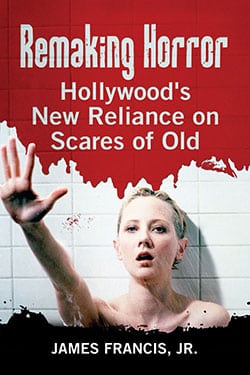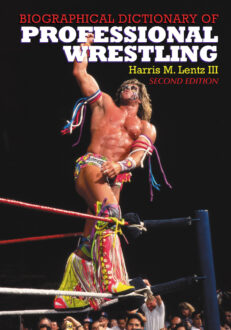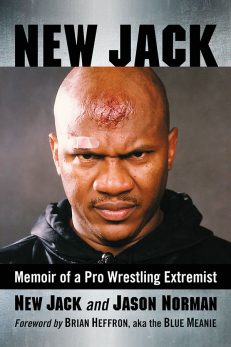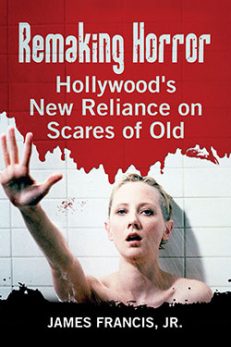Remaking Horror
Hollywood’s New Reliance on Scares of Old
$29.95
In stock
About the Book
This book chronicles the American horror film genre in its development of remakes from the 1930s into the 21st century. Gus Van Sant’s 1998 remake of Alfred Hitchcock’s Psycho (1960) is investigated as the watershed moment when the genre opened its doors to the possibility that any horror movie—classic, modern, B-movie, and more—might be remade for contemporary audiences.
Staple horror franchises—Halloween (1978), Friday the 13th (1980), and A Nightmare on Elm Street (1984)—are highlighted along with their remake counterparts in order to illustrate how the genre has embraced a phenomenon of remake productions and what the future of horror holds for American cinema. More than 25 original films, their remakes, and the movies they influenced are presented in detailed discussions throughout the text.
About the Author(s)
Bibliographic Details
James Francis, Jr.
Format: softcover (6 x 9)
Pages: 224
Bibliographic Info: 20 photos, appendix, bibliography, index
Copyright Date: 2013
pISBN: 978-0-7864-7088-4
eISBN: 978-1-4766-0014-7
Imprint: McFarland
Table of Contents
Table of Contents
Acknowledgments vi
Introduction 1
1 • The Value of Horror 9
2 • Psycho: The Last Bastion of Fear and Storytelling in
American Cinema 19
3 • Halloween: When Holidays Gave Meaning to Horror … 33
4 • Friday the 13th: Superstition Brought Universal Appeal … 48
5 • A Nightmare on Elm Street: The Safety of Sleep
Was Violated … 60
6 • Remake Central 77
7 • The Interviews: Industry Professionals Riff About the
State of Horror 146
8 • What’s to Come 164
Conclusion 175
Remake Catalog, 1931–2013 183
Works Cited 193
Index 209
Book Reviews & Awards
“well-structured…. He obviously understands his subject matter, and is therefore clear, direct and explicit in his manner of presentation”—Scarlet; “an incisive, in-depth exploration…excellent interviews…a valuable book”—Destructive Music.






